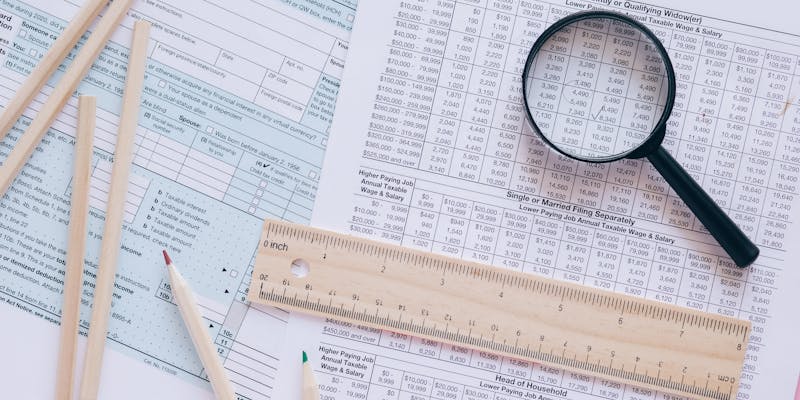
When you realize you owe money to the IRS after finishing your taxes, it's one of the most unpleasant emotions. Your self-employment status, the withdrawal from a retirement savings account, or your disqualification for certain tax benefits are just a few of the reasons you may owe money to the IRS.
You can lessen the impact of tax burden by being prepared in advance. Keep on reading this article to learn why you might owe taxes and what you can do about it. Let's get started!
What is meant by Tax Liability?
It's the total amount of money you owe the IRS for all of your combined taxes, including income tax, sales tax, earnings tax, tax on self-employed businesses, and past-due taxes. Despite the fact that your filing status and income affect your tax liability, you can lower your tax due by utilizing specific exemptions and deductions.
The first thing you should do if you're concerned about your tax burden is file your tax return as soon as possible. If you file early, you'll know exactly how much you owe, even though you do not have to pay until tax day.
Common Reasons for Owing Taxes to the IRS

There are a number of reasons why you could owe the IRS money. Here's what you should know if any of the following apply to you:
Not Enough Withholding
A usual cause of unpaid taxes is insufficient withholding from your salary. You can practically give yourself a raise by working with your employer to modify your Form W-4 and ensuring that you aren't withholding more than is necessary. Careful planning is necessary to prevent an unpleasant surprise at the end of the year. Make sure you have deducted adequate taxes, but not so much that you are effectively making a large interest-free loan to the government.
Self-Employment Tax
In order to prevent a large tax burden, small business owners must pay estimated taxes on a quarterly basis. If your income remains constant throughout the year, subtract your annual income from your deductions to determine the taxes you will owe, then divide that amount into four equal installments. You can modify your quarterly payments in the event that your income changes over the year.
In the following payment period, any overestimation or underestimation can be adjusted. If you are a recipient of unemployment benefits this year, you must pay taxes on that income. In order to avoid receiving a bill when you file your taxes in the spring, you have the option to have taxes deducted from your unemployment benefits.
Additional Income
The IRS views you as self-employed and requires you to pay taxes as a business owner if you performed any freelance work this year, even if it was only part-time. It is your responsibility to file normal income taxes according to your tax bracket and 15.3 percent self-employment tax for Medicare and Social Security. It is necessary for you to pay anticipated taxes at least once a quarter of the year if you anticipate owing over one thousand dollars in taxes.
Capital Gain Taxes
Finally, you may have to pay capital gains taxes if you sell securities in a non-retirement plan at a profit. The variation between your basistypically your purchase price, but occasionally that includes an adjustmentand the selling proceeds will be subject to taxation. The length of time you owned the holding before buying it and your annual income will determine how much tax you pay.
Alterations to Tax Laws
Every year, changes in tax legislation may have an impact on your tax liability. Your tax bill may increase if tax credits and deductions expire or are reduced. For instance, you can owe additional taxes than you anticipated if you used to be eligible for a particular tax benefit but are no longer due to changes in the law.
How to Avoid Owing Taxes?

When you find yourself owing taxes to the IRS, don't panic. There are several things you can do to avoid owing taxes.
Refigure Your Tax Liability
You must determine the amount of tax withheld. It is a somewhat two-step procedure. First, determine the amount of federal taxesjust income taxthat are deducted from your paycheck. Next, you'll need to calculate your approximate tax liability, which is determined by your income and the tax bracket you fall into. Then, to find the amount you underpaid your taxes, simply take your tax liability and deduct your withholding.
Alter Your Withholding
To ensure that enough taxes are deducted from your paycheck each pay period, you must modify your tax withholding once you have determined how much you undervalued your taxes for the year. To find your number, just divide your expected tax deficiency by the total number of paychecks you have left towards the end of the year.
Pay Your Taxes Quarterly
You have two choices: the primary source of your tax debt is self-employment income or proceeds from a side business. We have already discussed the first alternative, which is paying taxes on a quarterly basis. Nonetheless, it can get really difficult to estimate and pay quarterly taxes.
You can increase the amount withheld from your paycheck at your other employment if payroll is withheld to cover the revenue from your side project. That's the easiest thing you can do. And wherever you can make your tax situation simpler.
If you're not sure why you owe taxes or how to handle the problem, you might want to consult a tax expert. A tax counselor may assess your financial status, explain the reasons for your tax liability, and offer solutions to reduce it going forward.
Conclusion
In conclusion, having unpaid taxes on your record could be stressful, but it's a problem that many people encounter. You may lessen the impact of tax burden on your budget and avoid similar issues by being aware of the reasons why you owe money on taxes and taking preventative steps to resolve the situation. The key is to stay informed, stay organized, and take action when needed.




